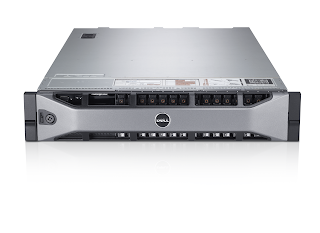– Jared Jacobs, Sr. Global SEO Strategist & Consultant at Dell, says:
Cloud computing, as a tool, has been growing very fast and many different industries have taken advantage of the convenience and reliability of the technology. However, there have been some concerns, especially in the telecommunications industry, over connectivity control, trust, privacy, and security. Telecom service providers face a lot of very complex issues every day, and they are very dependent on these technologies, which can mean that new types of connectivity may be a cause for real concern. Telecom providers are expected to deliver extremely high levels of reliability, but there are a lot of potential events that could disrupt service or even harm the hardware. Any downtime can interrupt service, which is why a number of these providers are employing cloud solutions to improve their ability to avoid or recover from unforeseen events.
Possible Problems for the Telecom Industry
A significant portion of the telecom customers are starting to value data over voice, which means there is a lot more data for providers to deal with. Add to that the new types of connectivity, such as machine-to-machine (M2M), and the definition of connectivity can start to change and force operators to develop new strategies. For example, the increase in M2M connectivity means that providers may need to start looking at their services in new ways. They need to stop thinking in strictly human to human interaction and consider new ways to deliver the expected service and maintain uptime. These same providers need to find ways monetize connectivity across B2B and B2C. There is going to be a lot of developments in this area, and a lot of opportunities to build revenue, but only if telecom operators can align their strategies with these growth areas. Having the right strategy of scalable carrier-grade servers and storage devices will allow Telco companies to manage the influx of data.
Cloud Computing Services
Managing cloud connectivity is also an important service that telecom operators can offer. As a distributed resource, telecom providers need to provide extremely reliable network performance. Operators need to think of cloud computing as an integral part of their strategies and services. This means they can shift from simply selling basic human to human communication services to providing more data-centric capabilities. In order to deal with these new developments, though, providers will need to develop new partnerships and build on their infrastructure to optimize their offerings. This could include replacing or updating the carrier-grade servers or developing new plans to better monetize their payment structures.
Interconnectivity is likely going to be a very important element in this developing environment because a lot of the current growth has been spurred by the consumer electronics industry. Whether it’s through a smartphone, tablet, or other mobile device, the proliferation of these products continues to push the M2M connectivity and put more strain on telecom providers. Still, these issues can be handled if the operator plans for this level of cloud computing in their services.
Where Is It Going?
As the industry continues to change, there have been a number of predictions on where, exactly, it’s going. Currently, we are seeing more and more cloud computing mixed with mobility and ubiquitous broadband connections. Telecom operators have had to react quickly to provide the consistent and reliable connections that consumers demand. However, they have also seen the chance for new revenues in this area, which has led to global investments in cloud services growing rapidly. Some estimates say that these investments could grow from an estimated $55 billion in 2011 to almost $130 billion annually by 2015.
As the telecommunications industry continues to offer cloud solutions, and implement those same solutions for their own processes, the connectivity problems should begin to smooth out and more users will have the access to the storage, computing power, and interconnectivity they need. Jared Jacobs has professional and personal interests in technology. As an employee of Dell, he has to stay up to date on the latest innovations in large enterprise solutions and consumer electronics buying trends. Personally, he loves making additions to his media rooms and experimenting with surround sound equipment. He’s also a big Rockets and Texans fan. Some resources with more information:
http://www.ericsson.com/res/site_AU/docs/2012/ericsson_telecom_cloud_discussion_paper.pdf http://www.ey.com/GL/en/Industries/Telecommunications/Top-10-risks-in-telecommunications-2012—Failure-to-capitalize-on-new-types-of-connectivity


.png)
